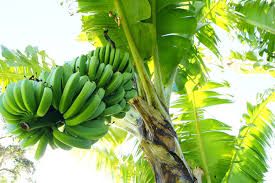I Hope President Tinubu's MoU With China Reaffirms Nigeria's Commitment To Beijing's Belt And Road Initiative With A Caveat That Will Supply Them With Tropical Crops In Exchange For Investment In Our Infrastructure
I hope President Tinubu’s MoU with China reaffirms Nigeria’s commitment to Beijing’s Belt and Road Initiative with a caveat that we will supply them with tropical crops in exchange for investment in our infrastructure
Ayo Akinfe
[1] Launched in 2013, China’s Belt and Road Initiative (BRI), is an ambitious plan to develop new trade relationships with the rest of the world. In Africa, this has meant providing the continent with infrastructure in exchange for raw materials
[2] Contrary to what a lot of Western anti-Chinese commentators say, BRI is not an exploitative programme. You certainly cannot equate it with Western imperialism or European colonialism, which was just about sucking Africa dry
[3] BRI did not bring with it religion. When a visitor brings their religion with them, be very wary because it tells you they are a coloniser. There is nothing wrong or exploitative about the Chinese investing in our railway network, ports, hydroelectric power sector, steel plants, etc, in exchange for raw materials like coffee, cocoa, bananas, plantain, cassava, yam, palm oil, rubber, coconuts, cashews, groundnuts, millet, sorghum, guar gum, pineapples, mangoes, papaya, pepper, macadamia nuts, kolanuts, avocado, etc
[4] Nigeria is a large African country with plenty of arable land that can produce tropical crops in abundance. I hope President Tinubu struck a deal with the Chinese to provide them with say $10bn worth of such crops a year in exchange for a corresponding amount of investment in our infrastructure
[5] This would be a just, fair, unexploitative and mutually beneficial bilateral trade agreement. Any such MoU should include a caveat that all the Chinese goods supplied for infrastructural development must be manufactured in Nigeria by local people in local factories. The days of us purchasing finished goods are long gone
[6] This MoU should also include a deal that all the raw materials we export to China must have at least 50% value added to them. Adding such value will create Nigerian jobs
[7] The tropical rainforest forms the majority of the environment in certain states like Ogun, Ondo, Ekiti, Akwa Ibom, Imo, Abia, Cross River, Edo Oyo, Ebonyi and Ekiti. Chinese state-owned firms should be invited to come and open mega plantations in these states to produce as much of these tropical crops as they can
[8] Nigeria has about 10,000 square hectares of tropical rain forest. We are losing about 3% of this a year, so for me, this MoU with China should ringfence our remaining rainforest, keeping it intact for the growth of tropical crops. For instance, do you also know that cocoa can only grow in the tropical rainforest as it needs its canopy to thrive? In Australia for instance they tried growing cocoa but it simply did not work
[9] Apart from crop production, preserving the tropical rain forest is an environmental necessity. Known as the lungs of the earth, it is the tropical rainforest that allows us to produce oxygen on our planet. A simulation was once performed in which all rainforest in Africa were removed. This simulation showed an increase in atmospheric temperature by 2.5 degrees to 5 degrees Celsius. I would like to imagine that the Sino-Nigerian MoU President Tinubu signed included a strong environmental element like this
[10] With these agreements and MoU’s, they say the devil is in the detail. I look forward to reading what was signed in China. I am particularly keen to see what production targets were set for all these tropical crops
Ayoakinfe@gmail.com


















